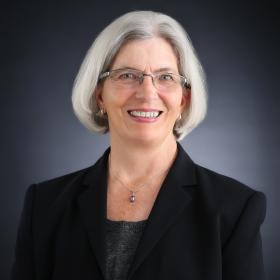
Subjectivity in Radical Ethics - Donna Orange, PhD, PsyD (Live)
FRIDAY NIGHT GUEST LECTURE SERIES 2023-24
Radical ethics, a philosophical position recognizing the priority of the other over the ego, specifically concerns the other’s suffering. It refuses to see the other as an instance of a category or concept, and therefor holds immense significance for workers in any mental health profession. But it can seem to deny, or minimize the needs of these workers, or of any individual’s needs in the face of the other’s suffering, and thus comes up against undeniable human limitations. It also raises the psychoanalytic problem of masochism. A revised and clearer idea of subjectivity, or of selfhood, can help us to see how we become ourselves in our very pre-existing responsibility for others, even when we come up against our limits.
Target Audience
X Introductory X Intermediate X Advanced
Learning Objectives
1. Participants will be able to explain the meaning of "radical ethics".
2. Participants will be able to apply the idea of radical ethics to the climate emergency.
3. Participations will be able to explain responsibility as a one -way relationship.
Educated in philosophy, clinical psychology and psychoanalysis, Donna Orange, PhD, PsyD teaches at NYU Postdoc (New York); IPSS (Institute for the Psychoanalytic Study of Subjectivity, New York); and in private study groups. She also offers clinical consultation/supervision in these institutes and beyond. Recent books are Thinking for Clinicians: Philosophical Resources for Contemporary Psychoanalysis and the Humanistic Psychotherapies(2010), and The Suffering Stranger: Hermeneutics for Everyday Clinical Practice(2011),Nourishing the Inner Life of Clinicians and Humanitarians: The Ethical Turn in Psychoanalysis,and Climate Crisis, Psychoanalysis, and Radical Ethics (2016), and most recently, Psychoanalysis, History, and Radical Ethics: Learning to Hear (2020). 2021 Visiting Professor of Phenomenology, Duquesne University
Austen Riggs Center Inc. adheres to the ACCME’s Standards for Integrity and Independence in Accredited Continuing Medical Education. All those at Austen Riggs Center involved in the planning of this activity, including the presenter(s) listed above, report they have no relevant financial relationships with an ineligible company*.
The views and opinions expressed in this presentation are those of the presenter(s) and do not necessarily represent the official policy or position of the Austen Riggs Center.
* An ineligible company is any entity whose primary business is producing, marketing, selling, re-selling, or distributing healthcare products used by or on patients.
In support of improving patient care, The Austen Riggs Center is jointly accredited by the Accreditation Council for Continuing Medical Education (ACCME), the Accreditation Council for Pharmacy Education (ACPE), and the American Nurses Credentialing Center (ANCC) to provide continuing education for the healthcare team
Available Credit
- 1.50 AMA PRA Category 1 Credit™
ACCME - As a Jointly Accredited Organization, The Austen Riggs Center, Inc. designates this learning activity for a maximum of 1.50 AMA PRA Category 1 Credit™. Physicians should claim only the credit commensurate with the extent of their participation in the activity.
- 1.50 APA
As a Jointly Accredited Organization, The Austen Riggs Center, Inc. designates this learning activity for 1.50 continuing education credit(s) (CE) for psychology. Continuing Education (CE) credits for psychologists are provided through the co-sponsorship of the American Psychological Association (APA) Office of Continuing Education in Psychology (CEP). The APA CEP Office maintains responsibility for the content of the programs.
Austen Riggs Center, Inc. is recognized by the New York State Education Department’s State Board for Psychology as an approved provider of continuing education for licensed psychologists #PSY-0115.
- 1.50 ASWB-ACE
As a Jointly Accredited Organization, The Austen Riggs Center, Inc is approved to offer social work continuing education by the Association of Social Work Boards (ASWB) Approved Continuing Education (ACE) program. Organization, not individual courses, are approved under this program. State and provincial regulatory boards have the final authority to determine whether an individual course may be accepted for continuing education credit. Austen Riggs Center maintains responsibility for this. Social workers completing this Webinar live will receive 1.50 continuing education credit(s).
Austen Riggs Center, Inc is recognized by the New York State Education Department's State Board for Social Work as an approved provider of continuing education for licensed social workers #SW-0843.
- 1.50 Contact Hours/ ParticipationA certificate of attendance for all Learners.

 Facebook
Facebook X
X LinkedIn
LinkedIn Forward
Forward